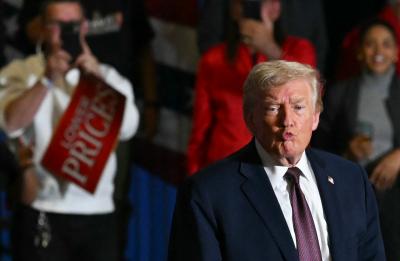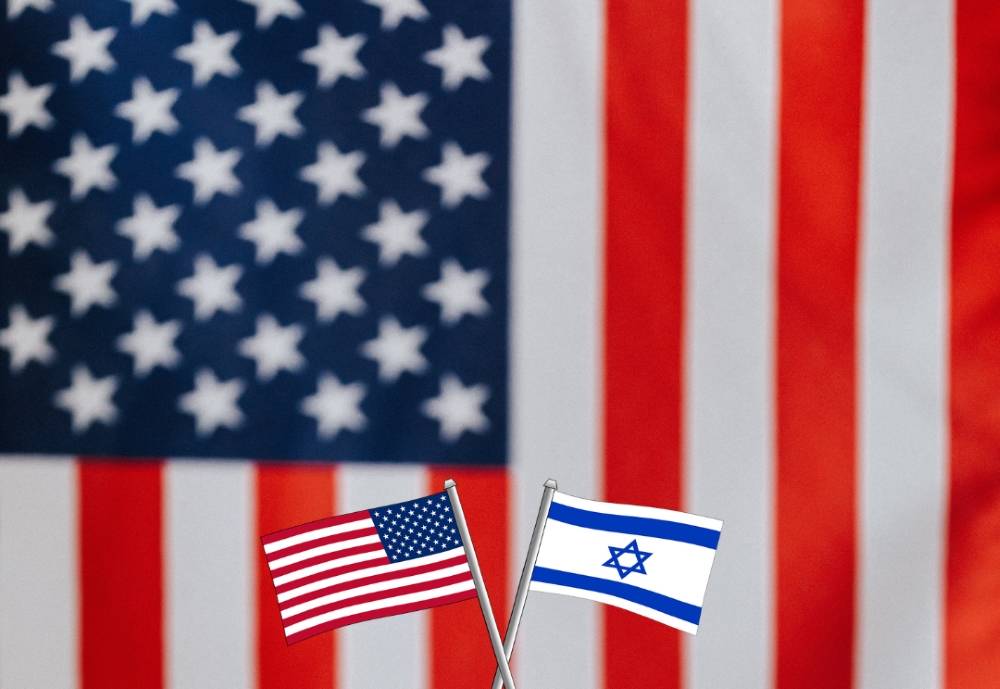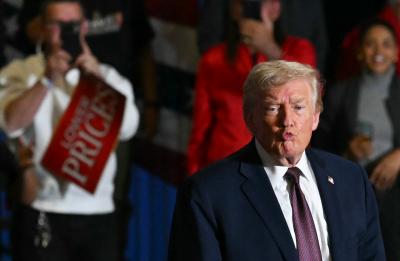The persistent tensions between the current American administration and Benjamin Netanyahu's government reflect an unprecedented shift in their relationship, transitioning from convergence to contradiction. President Joe Biden has issued unprecedented criticisms against the Israeli Prime Minister during a CNN interview, labeling some members of his government as "more extremist" than any he has ever encountered. He specifically singled out Israeli Finance Minister Avigdor Smotrich and Security Minister Itamar Ben Gvir, asserting that they "aspire to colonize all territories" and are "part of the problem" in the occupied West Bank. The President firmly reiterated his deep-seated belief that a two-state solution is the path forward to resolve the Israeli-Palestinian conflict.
Ben Gvir's response was swift, emphasizing that Biden should realize that Israel is not a state of the United States.
What is at stake between these two parties is not merely a secondary disagreement, especially as it is closely tied to the profound political upheavals unfolding both in the region and the rest of the world.
Washington's steadfast positions in the Middle East, rooted in absolute trust in Israel, are evolving. These positions involve protecting the Hebrew state, securing energy sources, and safeguarding international navigation routes. However, Israel has successfully managed to steer Washington towards plans aimed at weakening its Arab neighbors by mobilizing various influence groups. From the invasion of Iraq to the dismantling of Syria and Libya, and the imposition of a blockade on Iran to prevent it from developing nuclear capabilities, Israel has played a major role. However, the emergence of China as a powerful rival on the international stage has changed the game.
With its economic success as the world's factory and leading exporter, China has become a direct competitor to American policy. China's "Belt and Road" initiative has intensified this rivalry. As a result, Washington has adopted new strategies aimed at containing this emerging power. While the United States was spending its wealth on wars in Iraq, Afghanistan, Libya, and Syria, from which Israel was the main beneficiary, China was developing its conventional and nuclear military capabilities. Faced with this powerful Asian giant in military, economic, and financial terms, containing China has become Washington's top priority.
This is where the divergence of interests between the United States and Israel becomes apparent. While Washington seeks to ease tensions in the Middle East to focus its efforts on its confrontation with China, Israel prefers to maintain a climate of tension and conflict. The United States seeks to contain Iran through diplomatic means, while Israel opts for increasing pressure, going as far as imposing blockades and contemplating military actions. While Washington wishes to end the war in Yemen, Israel prefers to keep the conflict active to weaken Saudi Arabia and force it to align with normalization. The United States prefers to limit the conflict in Syria, while Israel prefers to keep Iranian influence under control by striking its positions and preventing its spread to the south, while also seeking to block the delivery of weapons to Hezbollah and Palestinian factions. The White House aspires to ease tensions in the occupied West Bank and move towards a two-state solution, which would alleviate humanitarian suffering and meet the expectations of certain Arab countries, notably Saudi Arabia.
However, Israel persists in its policy of colonization and takes advantage of international debates on major issues such as the war in Ukraine and the conflict with China, also exploiting the weakness of the Arab world to relegate the Palestinian question to the background. Moreover, when American interests required containing China on a technological and artistic level, Israel transferred some technologies acquired from the West to China, through trade agreements and the establishment of subsidiaries of Israeli universities in Chinese cities, thus seeking to achieve significant financial gains and exert leverage over Washington. At the height of Sino-American tensions, Netanyahu went to Beijing to exert additional pressure or engage in bargaining, to the detriment of his closest ally.
This paradox largely explains the ongoing events in the occupied territories, along the Lebanese borders, the strikes in Syria, and the tensions with Iran. Especially since recent reports announced the imminent conclusion of a partial agreement between Tehran and the Six Major Powers, an agreement that does not satisfy Israel.
Overall, the West, and particularly Washington, will never turn away from Israel, no matter the situation. For them, Israel is a strategic linchpin and a crucial investment. Its fall would be a historical event of a depth similar to the Ottomans' capture of Constantinople in the 15th century. They are not worried about an external attack as long as the conditions are not met, and a military and political imbalance would be to their advantage. However, they are concerned about the internal situation in Israel, where extremism is reaching its peak and deep division threatens the country's unity.
This stems from its unstable policies, with frequent changes of government throughout the year and repeated early elections. Biden's statements and his refusal to receive Netanyahu at the White House reflect the concerns of the administration, a large part of the Democratic Party, Pentagon strategists, and even some leaders of the global Zionist movement, in the face of the "suicidal" tendencies of the Israeli far right.
Please post your comments on:
[email protected]
 Politics
Politics













